Tinnitus
What Is Tinnitus?
Tinnitus is a sound in the ears or head when there is not an external corresponding sound. People with tinnitus hear sounds within the body that other people cannot hear. Tinnitus sufferers commonly describe ringing, buzzing, humming, roaring, whistling or other noises in their ears.
Who Gets Tinnitus?
Approximately 15% of people experience tinnitus. For people over the age of 55, this number increases to over 30%. For many people, tinnitus is a mild irritation and may be only temporary. Tinnitus can be caused by many different reasons. Tinnitus typically starts as a result of hearing loss. Some causes of hearing loss include exposure to loud noises, taking certain types of drugs and medications or middle ear infections. In a small number of cases tinnitus may require medical or surgical intervention.
How Tinnitus can Affect You
For some people that have tinnitus another part of the brain (the limbic system) attaches an emotional response to the tinnitus. Similar to the “feeling” you get when you scratch your fingernails down a blackboard, tinnitus can be more than just a sound.
Tinnitus can cause anxiety and stress responses in the body, through the autonomic nervous system. The autonomic nervous system controls involuntary processes in the body such as heart rate, breathing, and blood distribution. Around 1-2% of people with tinnitus are bothered so much that sleep, relaxation, and concentration are affected.
Tinnitus can restrict people’s quality of life as sufferers avoid situations that make the tinnitus more noticeable such as quiet environments or particularly noisy situations. For some, tinnitus is a condition which can have a negative impact on work, family, and social life.
What Should You Do If You Have Tinnitus?
If you are one of these people, you may want to consider obtaining a Tinnitus Evaluation.
It is important to know, and remember, that there currently is not a cure for tinnitus. However, there is relief available. The goal of any tinnitus treatment plan is to break the negative emotional response to the tinnitus, and thus reducing the associated anxiety, stress anger, etc.
When patients present with both aidable hearing loss and bothersome tinnitus, Total Hearing Solutions protocol is to address the hearing loss and fit with binaural amplification (i.e. hearing aids). Some hearing aids are equipped with an additional program designed to mask, or cover up, the tinnitus as needed by the patient. These features can be discussed more in-depth with your Audiologist during a tinnitus consultation.
When patients suffer from bothersome tinnitus, but are not candidates for hearing aids, a common approach is the use of sound therapy. Sound therapy uses an external sound or noise to help change the patient’s perception and reaction to the tinnitus. Some examples include environmental noise machines, white noise generators, and even music-based sound therapy. The first step, however, in tinnitus relief is to contact Total Hearing Solutions at (317)-705-2700 and schedule your tinnitus evaluation today.
A smartphone application that can be used in conjunction with PTM (Progressive Tinnitus Management), gives your clients access to their customized sound plan to manage their tinnitus. A sound plan includes three types of sound:
- Soothing: inducing a sense of relief from the tension caused by tinnitus
- Background: reducing the awareness of tinnitus
- Interesting: active attention diversion away from the tinnitus
Sounds can be selected from the client’s personal smartphone music library or a list of default sounds included with the App. Patients can benefit from the app either direct from their phones (e.g. via headphones or speakers) or streamed direct to their Audéo hearing instruments via the ComPilot.
What is a Tinnitus Evaluation?
A tinnitus evaluation includes a hearing evaluation (audiogram), and additional testing which assesses the following:
- The frequency of your tinnitus pitch
- The level of noise required to mask your tinnitus
- Your sensitivity to loud noises
- The amount of tinnitus disturbance
What is the purpose of a Tinnitus Evaluation?
The tinnitus evaluation, with the accompanying provided questionnaires (given with initial paperwork), allows your Audiologist to evaluate the presence and severity of your tinnitus. These methods can help distinguish between clinically significant and non-significant tinnitus, and thus allowing for a more precise treatment plan.

